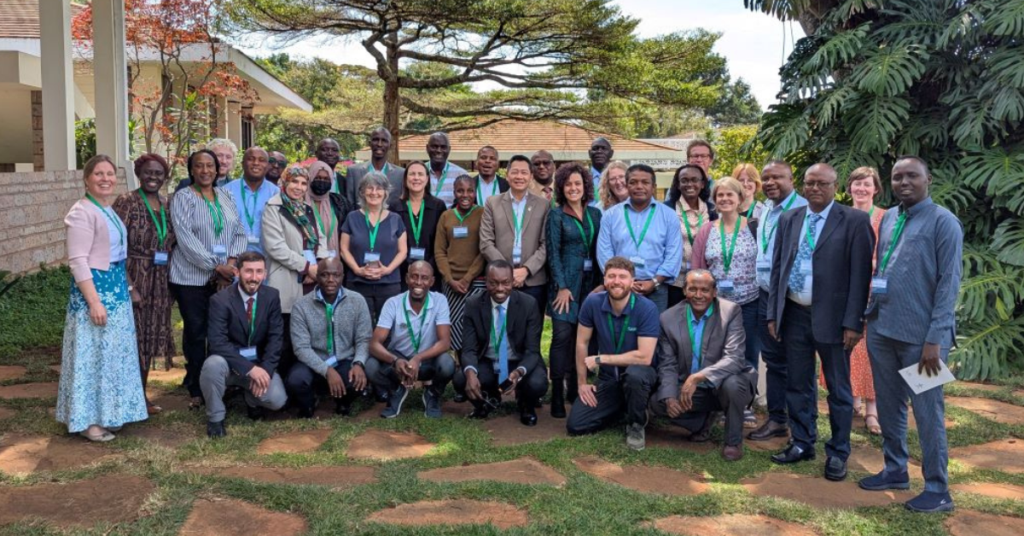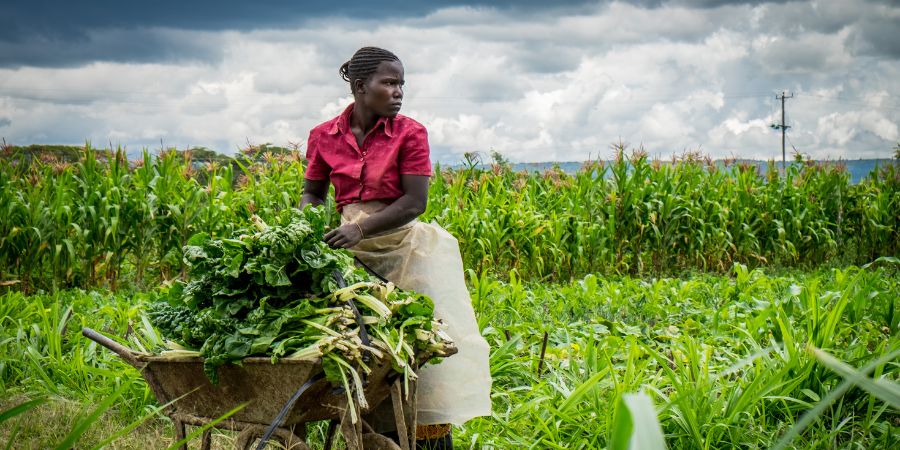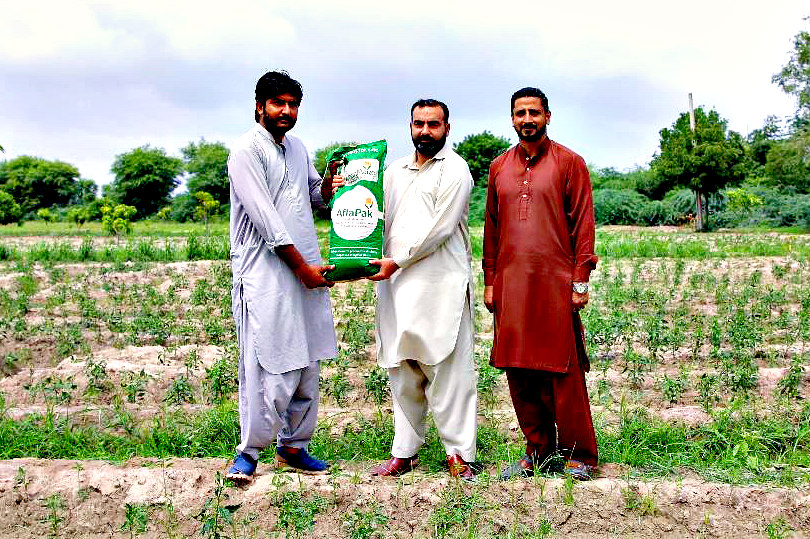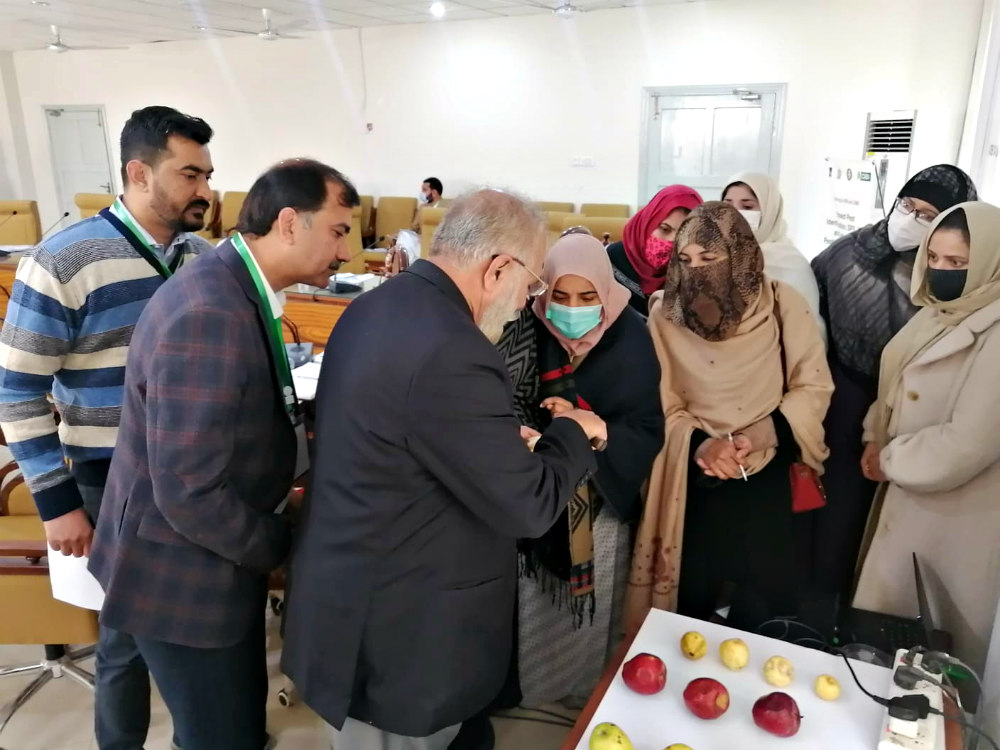CABI Blog
Category: Food and nutrition security
You are here: CABI Blog
Identifying future One Health research needs to benefit people, animals, plants and environment
April 8, 2025
Monique Tsang
No Comments
Participants from more than 48 countries have gathered in a series of workshops to discuss future One Health research priorities to inform research that will benefit people, animals, plants and the environment. One Health is a multi-sectoral approach aimed to optimize the health of humans, livestock, plants, and the ecosystems they share. “The interdependencies between these…
CABI hosts soil information systems workshop in Ghana
December 4, 2024
Alasdair McKay
No Comments
CABI and its project partners, ISRIC — World Soil Information, and Ghana’s Council for Scientific and Industrial Research – Soil Research Institute (CSIR-SRI), recently held a 2-day soil information systems workshop at the Capital View Hotel, Koforidua, Ghana.
Webinar series investigates greater use of biopesticides to combat crop pests and diseases in Caribbean
July 3, 2024
Wayne Coles
No Comments
CABI has facilitated a webinar series which investigated the prospect for greater utilization of biopesticides for combating potentially devastating crop pests and diseases affecting livelihoods and food security in the Caribbean. The webinars followed a visit to Guyana, Jamaica, and Trinidad and Tobago last year by Dr Daniel Elger, CABI CEO, to strengthen strategic partnerships.…
CABI’s GRASP Fellowship awardee working in partnership to help increase food safety in Uganda’s urban markets
January 30, 2024
Wayne Coles
No Comments
Dr Monica Kansiime, who was awarded a Gender Responsive Agriculture Systems Policy (GRASP) Fellowship aimed at improving policy process in agri-food systems, is working in partnership to help increase food safety in Uganda’s urban fresh fruits and vegetable markets. Nutrient-dense vegetables complement staple-based diets, providing both food and nutrition security. However, food safety problems linked…
Strengthening Sanitary and Phytosanitary Systems in Burundi: A transformative training experience
October 17, 2023
Wayne Coles
No Comments
To ensure the competitiveness of Burundi’s agricultural products on the international market, the on-going project on strengthening Burundi’s plant health system initiated a training programme aimed at increasing the country’s capacity to improve its Sanitary and Phytosanitary Systems (SPS).
CABI and USDA hold workshop in Uganda to promote electronic phytosanitary certificate among AU Member States
July 3, 2023
Wayne Coles
No Comments
CABI has teamed up with the United States Department of Agriculture (USDA), the Inter-African Phytosanitary Council of the African Union (AU-IAPSC) and the International Plant Protection Convention (IPPC) Secretariat, to hold a workshop in Entebbe-Uganda to promote the Electronic phytosanitary certificate (ePhyto) among African Union’s (AU) 55 Member States. The IPPC ePhyto solution aims at…
The Global Burden of Crop Loss: Evidence-based systems to tackle food security
October 11, 2022
Laura Hollis
No Comments
As World Food Day approaches, we look at the impact of crop loss on food security and the data needed to support evidence-based solutions for prioritising crop protection investments.
Fields trials on biological control of aflatoxins on red chilies to ensure safer crops
September 28, 2022
Babar Bajwa, Sabyan Faris Honey
No Comments
CABI in Pakistan is leading a project to help provide a biological control solution for combatting aflatoxin issues prevailing in red chillies grown in Sindh, Pakistan.
CABI partners in training to help ensure Pakistan’s food security amid challenges of climate change
August 10, 2022
Kazam Ali
No Comments
Pakistan, according to a report published by the Asian Development Bank (ADB) and World Bank, is one of the world’s countries most at risk from the impacts of climate change with temperatures potentially rising considerably above the global average.
CABI podcast
March 10, 2022
Donna Hutchinson, Joanna Slezak, Laura Hollis, Toby Penrhys-Evans
No Comments
Welcome to the CABI podcast, a series dedicated to agricultural science and how it can improve lives and address the challenges faced by people around the world.
Subscribe to blog
DISCLAIMER
Views expressed in contributions do not necessarily reflect official CABI positions.
Archives
Categories
- Agriculture and International Development
- Veterinary and Animal Sciences
- Climate change and biodiversity
- Publishing
- Value chains and trade
- Crop health
- Environmental Sciences
- Human Sciences
- Tourism, Hospitality and Leisure
- Food and nutrition security
- Plant Sciences
- Gender and youth
- Digital development
- Development communication and extension
- Economic development
- Invasive species
- CABI Bioservices
- One Health










